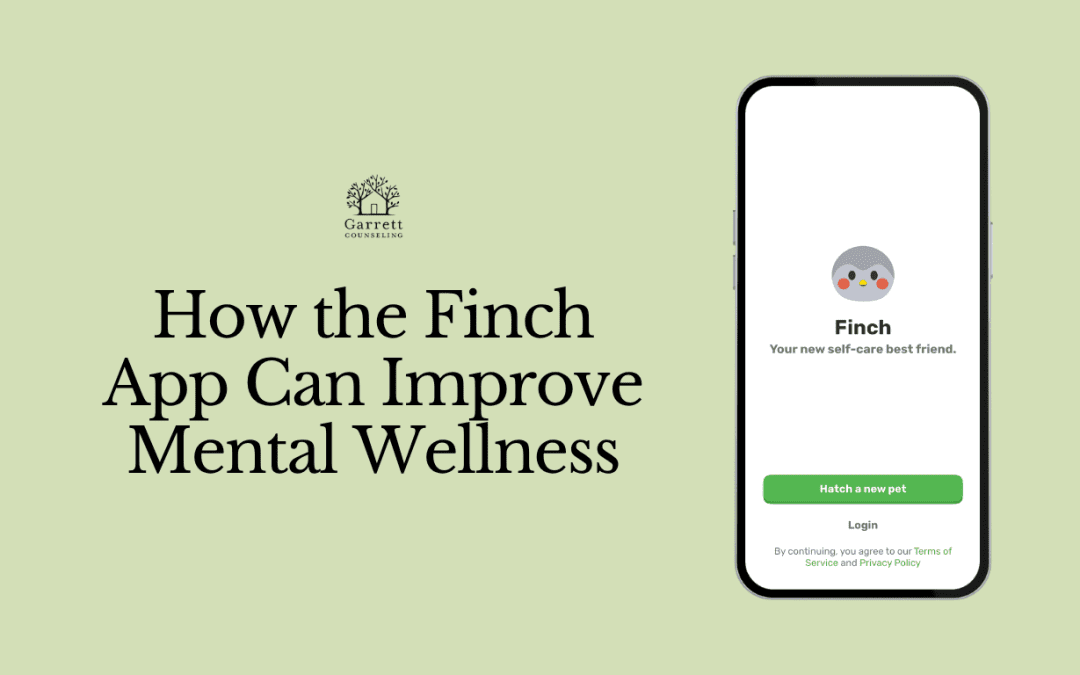Finch is a Mental health app that encourages self-care through interactions with a virtual pet. The Finch app was launched in May of 2021 after the creators’ personal struggles with anxiety and depression. The creators of the Finch app made it their mission to develop an app that focuses on self-care in a creative and fun way. A benefit of the Finch app is that it provides a unique experience that promotes responsibility. According to the Apple App Store, the Finch app is free for ages 4+. The Finch app lets users care for their virtual pet by meeting their own needs.
How Can Finch Be Utilized in Everyday Use?
Finch is a fantastic app that can be utilized in many different ways. Parents can utilize Finch to improve their children’s motivation to complete bedtime and morning routines. For example, Finch lets you create morning routines that include goals like making your bed, brushing your teeth, and washing your face. Furthermore, adult users who thrive when they can complete tasks throughout the day can use this app to set daily goals and reminders to be more intentional, such as going for a walk outside or completing a deep breathing exercise.
Creating a Virtual Pet
After downloading the App, users can choose the gender, color, and name of their virtual pet. Furthermore, users will then choose a trait for their virtual pet, such as curious, confident, and compassionate. Once you have created your virtual pet, you can build mindful habits through daily goals. When users complete goals, they are also energizing their pet to go on their daily adventures. As users use the app consistently, their virtual pet grows and develops its own personality.
Guide for Daily Use
As users open the app, they are prompted to complete a daily mood check-in. In which users select an emoji that describes their current mood. Next, the app encourages users to have a quick chat with their virtual pet. During the chat, users discuss their pet’s discovery. Users’ virtual pets may discover a new friend, a new item that your pet likes, or an item your pet dislikes. A few discoverable items consist of a new food item, a song, or a new drink. After chatting with your virtual pet, it will earn points toward its personality. These points may go towards building your pet’s resiliency, curiosity, logic, compassion, confidence, or security.
After completing your chat with your virtual pet, users can check off the daily goals they completed that day. As you check off daily goals, users will collect energy for your virtual pet. Once users fill the energy bar, their virtual pet is ready for the next forest adventure. After your pet sets off for the next adventure, you will not be able to interact with your virtual pet for the next 7 hours and 40 minutes. While your virtual pet is away, the app still allows users to complete daily goals throughout the day.
Missed Days?
There may be times when users struggle to log in to the Finch app consistently. No worries, your virtual pet will be patiently waiting for your return. Once you log in to the app, you will be prompted to choose how many days you are willing to commit to caring for your virtual pet.
- 2 Days: Baby Steps
- 5 Days: Strong Steps
- 7 Days: Clearly Committed
- 14 Days: Unstoppable Streak
Utilizing Finch’s Features to Increase Mindfulness in Daily Routine
Mobile apps that cater to individuals looking to improve mental health use mindfulness and cognitive-behavioral therapy (CBT) techniques (Drissi et al., 2020). According to Semple and Burke (2011), mindfulness is the process by which an individual is aware of the present moment by identifying what’s going on internally and/or externally. The Finch app offers features that help users stay present in the moment. These features include:
- Daily Mood Check-ins
- Goal setting
- Daily Reflections
- Timers (Promoting focus and attention)
- Guided Meditations
- Breathing Tutorials
- Soundscapes
- Create a Journey that caters to your individual needs (5 Journey Days)
- Send Good Vibes to Friends and Family
- First Aid Kit and Helpline
For more mental health technology reviews, click here!
References
Ahmed, A., Ali, N., Aziz, S., Abd-alrazaq, A. A., Hassan, A., Khalifa, M., Elhusein, B., Ahmed, M., Ahmed, M. A., & Househ, M. (2021). A review of mobile chatbot apps for anxiety and depression and their self-care features. Computer Methods and Programs in Biomedicine Update, 1, 100012. https://doi.org/10.1016/j.cmpbup.2021.100012
Semple, R., & Burke, C. (2011). Child and Adolescent Therapy: Cognitive-Behavioral Procedures. In P. C. Kendall (Ed.), Google Books (pp. 411–426). Guilford Press. https://books.google.com/books?hl=en&lr=&id=c0MJjigA8-YC&oi=fnd&pg=PA411&dq=mindfulness+in+children+with+anxiety&ots=-wzqW5yegH&sig=rGg_CFL6SVYgLbdhzZz_S_apWHQ#v=onepage&q=mindfulness%20in%20children%20with%20anxiety&f=false
Drissi, N., Ouhbi, S., Janati Idrissi, M. A., & Ghogho, M. (2020). An analysis on self-management and treatment-related functionality and characteristics of highly rated anxiety apps. International Journal of Medical Informatics, 141, 10424 https://doi.org/10.1016/j.ijmedinf.2020.104243

